News + Media
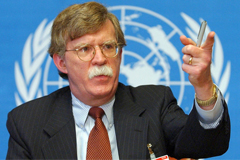 |
AuditOctober 1, 2007Who failed whom? Assessing the UN’s human rights effortsBalakrishnan Rajagopal, MITSeveral months ago, during the finalization of the plan to replace the United Nations’ Commission on Human Rights with the new UN Human Rights Council, John Bolton, the U.S. ambassador to the UN, said with characteristic flourish, “We want a butterfly..." |
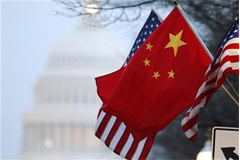 |
AuditOctober 1, 2007Distracted at the creation: Washington’s China policyChristopher P. Twomey, Naval Postgraduate SchoolU.S. China policy in the beginning of the twenty-first century is greater than the sum of diplomatic initiatives and presidential statements. Since China’s rise is reshaping global politics, U.S. policy should be evaluated in this larger context. Washington must not only handle its relationship with China on a day-to-day basis, but must also lay the foundations for a long-term response to its rise.
|
 |
Analysis + OpinionSeptember 2, 2007The rogue that plays by the rulesEdward S. SteinfeldWashington PostAs many Americans understand the country, China is trouble for its own people and all the rest of us. Its government is hell-bent on development but provides none of the checks expected of a healthy market system: a free press, an independent judiciary, meaningful property rights and a real legislature. Institutionally deficient and stuck in the past, China is unprepared to deal with the future and to work within the rules of fair play that bind the world's most advanced economies -- or so the conventional wisdom suggests. |
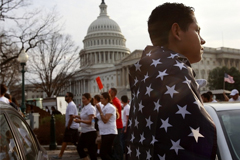 |
AuditSeptember 1, 2007Immigration reform: failure and prospectsTara Magner, National Immigrant Justice CenterThe debate over immigration reform in America has come full circle. It began in late 2005 with an “enforcement only” bill in the House of Representatives that relied on aggressive implementation of existing law and greatly restricting future immigration. The most extreme legislation proposed in this vein would have made felons of undocumented immigrants and prosecuted those who provide such immigrants with aid or comfort. |
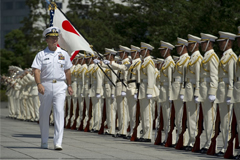 |
AuditSeptember 1, 2007'New fighting power!' for Japan?Richard Samuels, MITJapanese strategists struggled for decades to find a way to field a robust military despite legal, political, and normative constraints on the expansion of the Self-Defense Forces (SDF). Their progress was steady and significant, but slow. Now, leveraging off (and playing up) a perceived shift in the nature of the threat Japan faces, they have found a less constrained and highly efficacious route to force transformation. |
 |
AuditSeptember 1, 2007Is the foreign policy process working?John Tirman, MITFor decades, political analysts have dissected the mechanisms in the U.S. government and other institutions to describe how foreign policy is made. The matter seems to rise with international crises, and those are upon us again: the Iraq and Afghanistan wars, the confrontation with Iran, HIV/AIDS, and the pressures of climate change, among other issues, underscore the point. |
 |
AuditSeptember 1, 2007Iran-Pakistan-India pipeline: Is it a peace pipeline?Abbas Maleki, International Institute for Caspian Studies (Tehran)A major natural gas pipeline that would stretch from the fields of southern Iran to Pakistan and India—itself a remarkable prospect—is being planned. But it faces serious hurdles, not least the fierce opposition of the U.S. government. |
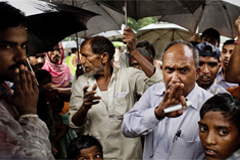 |
Analysis + OpinionAugust 18, 2007The caste system- India's apartheid?Balakrishnan RajagopalThe HinduHaving taken a principled stand in foreign policy against racial discrimination and apartheid, India should not hide behind a false sense of Third World sovereignty in discussing the real problems of how to effectively end caste discrimination in a complex society. |
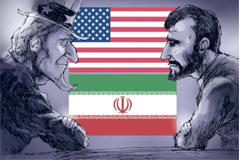 |
Analysis + OpinionAugust 14, 2007A new Cold War with Iran?John TirmanBoston GlobeThe "war of ideas" is different as well. Soviet communism was a highly imperfect version of what Karl Marx intended, but Marxism generally appealed to hundreds of millions of the downtrodden worldwide, regardless of culture. Shia Islam, the ideology of Iran, appeals only to a small segment of the Muslim world, and not beyond; even in Iran, its militancy is not obviously popular. |
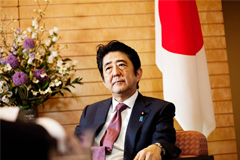 |
Analysis + OpinionAugust 7, 2007The more muscular JapanRichard J. SamuelsBoston GlobeWhile many nations are breathing a collective sigh of relief after North Korea's official commitment to move forward on disabling its nuclear facilities, one country is still holding its breath: Japan. |

